
A picture taken after my pre-school graduation.
Being the oldest sibling and a first-generation Latina hasn’t been easy. My parents immigrated from Escuinapa, Sinaloa, Mexico to Boyle Heights when I was less than a year old. I recall my father and my younger brother Abelardo traveling to Tijuana, and I wasn’t allowed to go. In fact, my mom told me that I would not be able to return if I did go. It wasn’t until I was in elementary school when I found out I was undocumented.
Recently, I have come across TikToks, posts, and other forms of media that have helped me feel seen in my role as the eldest child. Oftentimes, being the oldest and a first-generation coincides with being the first in everything. The first to pursue higher education, the first to obtain a degree, the first to talk about mental health and the first to have a family of my own.
It's not that I'm trying to brag or anything, but my maturity level is much higher than my younger siblings and that’s because I had a different experience from them growing up. I’m 27, my younger siblings are 24 and 19.
As a first grader, I remember being pulled away from class to receive English tutoring. Back then I really thought that it was normal. By the time I was in 4th grade I had managed to get better at my English, but I was still struggling. I recall my teacher Ms. Aguilar asking me if my parents would help me with my homework because most of the time it would have a lot of mistakes. Both of my parents' primary languages are Spanish so they were unable to help me at all. I was embarrassed to tell Ms. Aguilar that I was the only one who spoke English at home. I never told my parents about this because I didn’t want to make them feel bad.

A photo with my first grade teacher, Ms. Guzman.
By the time I was in 6th grade I was able to get my green card, thanks to my dad, who had become a U.S Citizen. Honestly it was a moment of relief for me because I no longer had to fear being deported or separated from my family. In 2015 I finally become a U.S citizen and that meant a lot to me because that gave me all the opportunities and privileges I have now. Both of my siblings were born in Los Angeles so I always felt like they didn’t understand what I was going through legally and mentally.
Some of my earliest memories as the oldest child also involve translating for my parents everywhere and anywhere: from teacher conferences to grocery stores, the DMV, court letters and bills. Imagine trying to explain health insurance to your parents before you even understand what it means. It was always “¿Amairani, que dice aquí?” and I would always do it to the best of my knowledge. According to an article by Refinery 29, there are more than 11 million child translators in the U.S..

Every time I took a photo, my mother would make me pose.
Many of the times I was also a second mother to my younger siblings. I was their go-to person for anything. As we got older they relied on me a lot and so did my parents. Even if you have younger siblings who can also handle these responsibilities, you are expected to take care of them as the oldest one. I experienced this back then and continue to experience it now. I still have my siblings rely on me to help with applying to jobs, helping them apply to Medi-Cal or any formative situation. I constantly challenge them to learn things for themselves because I won’t always be there for them.
Navigating college on my own was difficult. I had to figure out what university to apply to or how to apply for financial aid on my own. It was hard. I felt like I was on my own most of the time. Back then I was 17 and didn’t even know how to drive so I had to learn how to take the bus from Pico Rivera all the way to Cal State L.A. In the process I got lost but it was OK. I also had to learn how to get classes online, how to change majors, buy used books and even apply for graduation. When it was time for my brother to attend college the process was easier for him because I knew the things that needed to be done.
Being the oldest sibling and a full-time student with a full-time job was exhausting. During college I had several mental breakdowns where I felt like I wasn’t good enough and in all reality I was stressed and overwhelmed by all the pressure and expectations that are expected as the oldest sibling and a first-generation.

A picture with my younger brother Abelardo and my mother Isis.
According to the American Psychological Association, Latinas are twice as likely to develop depression in comparison to Latino men, white and African-American populations. These factors contributing to this can include cultural values or even just working multiple jobs. In the Latino community there's this stigma about mental health not being real but I know it’s very real and as the oldest I want to break down some of these generational curses.

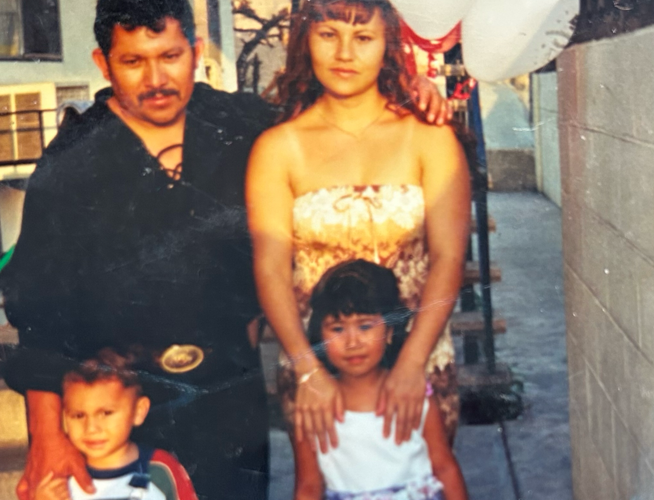
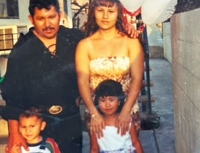
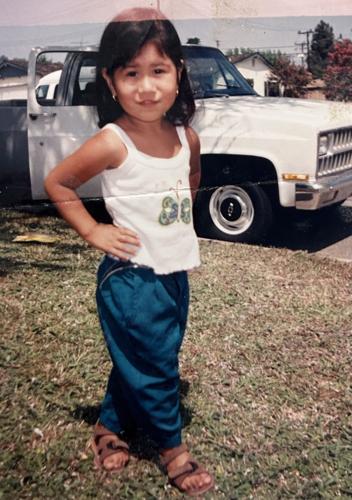
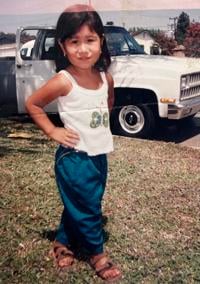
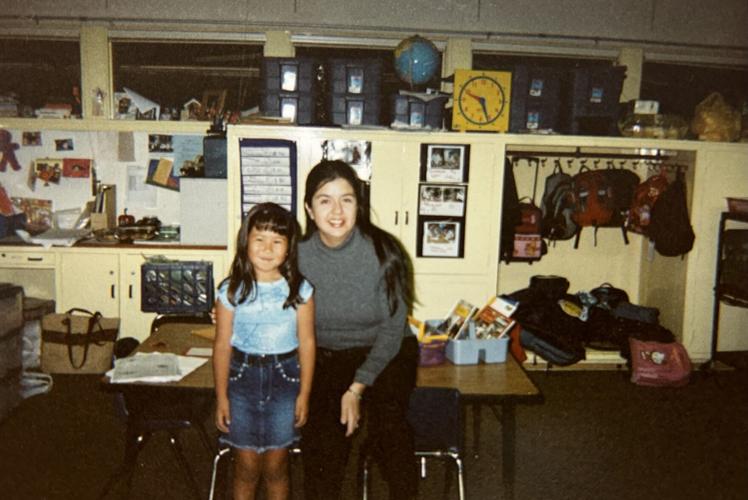
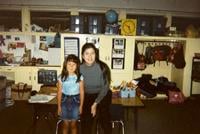
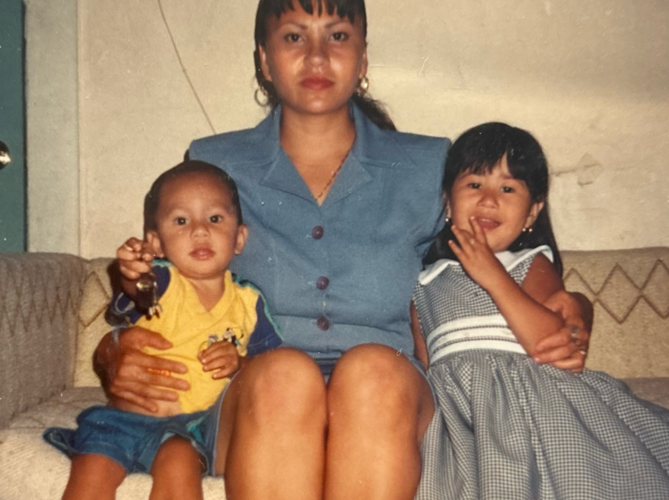
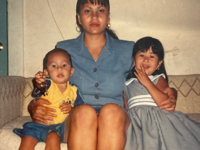








(0) comments
Welcome to the discussion.
Log In
Keep it Clean. Please avoid obscene, vulgar, lewd, racist or sexually-oriented language.
PLEASE TURN OFF YOUR CAPS LOCK.
Don't Threaten. Threats of harming another person will not be tolerated.
Be Truthful. Don't knowingly lie about anyone or anything.
Be Nice. No racism, sexism or any sort of -ism that is degrading to another person.
Be Proactive. Use the 'Report' link on each comment to let us know of abusive posts.
Share with Us. We'd love to hear eyewitness accounts, the history behind an article.